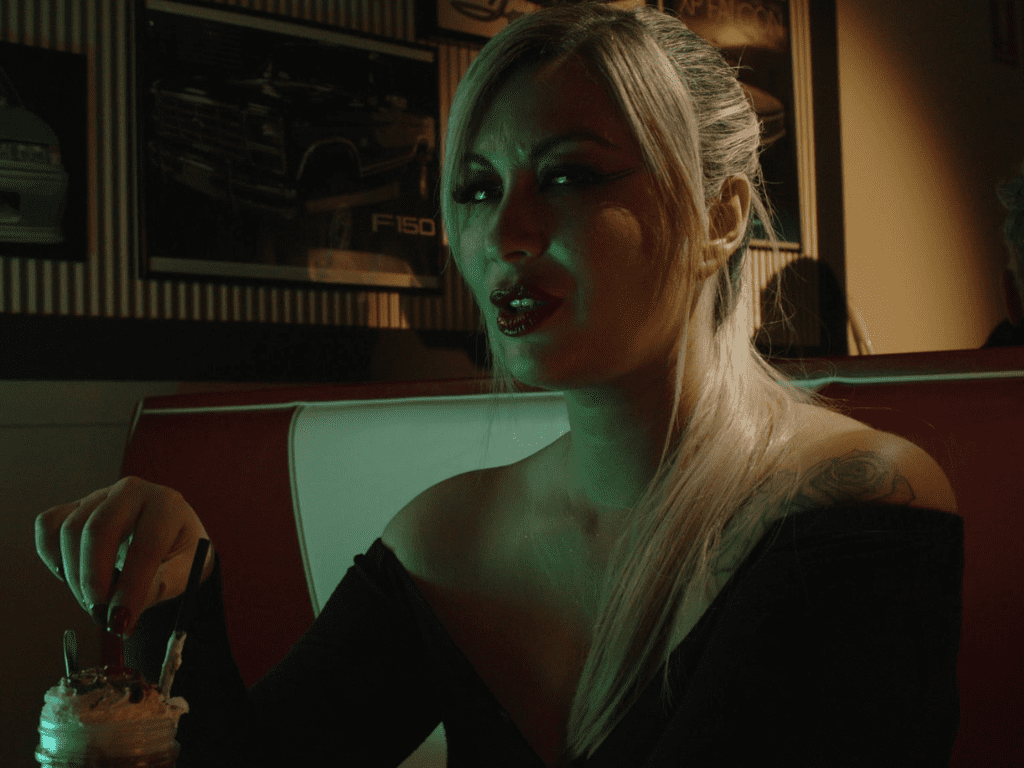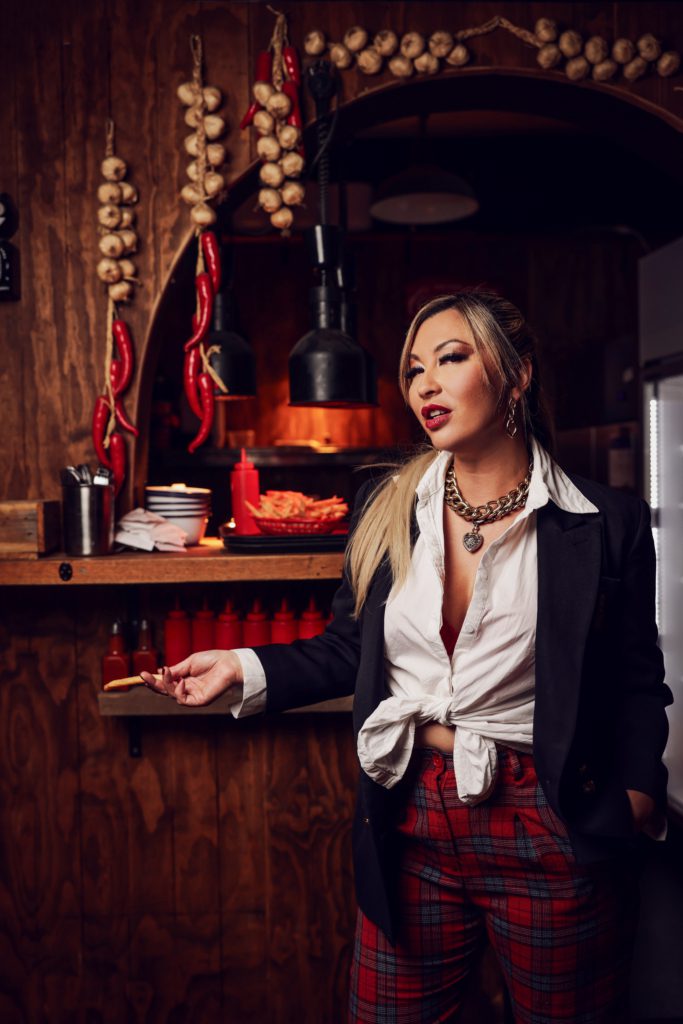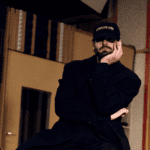
Nardia, an award-winning Australian singer-songwriter known for her soulful blend of R&B, Blues, Soul, and Jazz, is making waves internationally with her powerful voice and compelling storytelling. Having earned a Top 5 spot at the 2025 International Blues Challenge in Memphis as the only female artist in the band category, Nardia’s music channels raw emotion and deep nostalgia, often exploring themes of longing and “what could have been.” Her latest single, “Is It You,” from her upcoming album Own Every Scar, captures the delicate ache of new attraction and unspoken feelings, reflecting her signature ability to transform personal vulnerability into captivating art. With a rich career supporting legends like Russell Morris and Tex Perkins and starring in acclaimed musical tributes, Nardia continues to carve out a unique space in contemporary R&B, inviting listeners to connect with the emotional colors of her memories and dreams.
The music video set feels like a memory that never happened. What’s your relationship with nostalgia, and do you ever romanticise the “what ifs”?
I’m deeply nostalgic by nature. I feel like my songs are often built from pieces of dreams, half-memories, and “what could have been” moments. I definitely romanticize the “what ifs”—not in a way that traps me, but in a way that gives me endless colors to paint with. It’s the ache of possibilities that fuels a lot of what I write.
Was this song a confession you couldn’t say out loud until you sang it?
There have been times when I have felt unhappy and trapped in a relationship and felt like I wasn’t able to speak up or have a voice in the situation. This song was inspired by a harmless spark and attraction and that feeling you get when you first meet someone. So yes, not something you could speak up about, but a feeling and emotion that gives you some hope.
Do you have a ritual before recording the songs?
I do. I usually like to breathe and ground myself in the emotion of the song. Sometimes I light a candle; sometimes I just sit in silence. But I always close my eyes and reconnect with why I wrote it before I step up to the mic.
You move between jazz, blues, soul, and R&B like water—where do you feel most dangerous? Most free?

I feel most dangerous in blues. There’s something about its raw honesty that strips away all the polish — it’s just you, your pain, and your power, using your instrument as a way to express your emotions. Jazz lets me stretch, improvise, and disappear into the music, chasing a feeling in real time. R&B allows me to sink into the emotion — to be vulnerable, sensual, strong, broken, or healing — all in the same breath. It’s like telling the truth, but with a groove that carries you through it.
You’re working on Own Every Scar between Nashville and Memphis—two cities with legacies bigger than life. Are there any special musical influences from these states that are present in the album?
To be able to complete my album in some of the most influential music cities, Nashville and Memphis, is an absolute dream come true.
There’s a real respect for artistry that runs deep, and it changes you. In Memphis, especially, the spirit of legends like Al Green, Ann Peebles, Otis Redding, and Tina Turner seeps into the walls — artists who knew how to pour every ounce of truth, pain, and joy into a song. That raw, soul-deep emotion definitely found its way into Own Every Scar.
In Nashville, I found a different kind of influence — the craftsmanship of songwriting, where every lyric matters, where every line holds weight. Together, these two cities offered me more than a platform — they offered a legacy to honor and a challenge to be as honest and fearless in my work as the greats before me.
What ideas did you have about these two states before visiting them? Do you feel like Nashville and Memphis have more to offer to a rising artist?
Before visiting, I imagined Nashville and Memphis as these almost mythical places — cities built on grit, heartache, resilience, and pure love for music. To me, they were the heartbeat of American music history, where legends didn’t just chase dreams; they carved them into stone.

The spirit of the music there isn’t manufactured — it’s lived. It’s in the cracks of the sidewalks, in the sweat on the stage lights.
For a rising artist, Nashville and Memphis offer more than opportunity — they offer truth. They force you to dig deeper, to respect the lineage you’re stepping into, and to find your own authentic voice within it.
There’s a reverence for storytelling, soul, and vulnerability that pushes you to be better, not just more polished, but more real.
What does it mean to represent Melbourne in a soul genre often centered around America’s South?
It’s an honour, but it’s also a responsibility. Melbourne has its own soul, its own struggles and stories — and I get to be a bridge between my roots and the traditions that shaped this genre. It reminds me that soul music isn’t just about a place; it’s about a feeling, and that feeling is universal.
When people finally hear Own Every Scar, what secret are they going to learn about you that you’ve never spoken out loud?
When people finally hear Own Every Scar, they’ll discover a strength that was forged through vulnerability. For the first time, I’m not hiding the parts of me that feel too raw or too real — the loneliness, the longing, the battles no one sees. But instead of breaking me, those scars built me. This album is about standing tall in the truth of who I am — not pretending to have all the answers, but showing that real power comes from embracing every part of your story, even the painful ones. It’s these battle scars and imperfections that make you uniquely you.
Complete the sentence: I’ll know I’ve made it when…
I perform to an audience, and the crowd all know the lyrics to my songs. That would mean everything to me!


